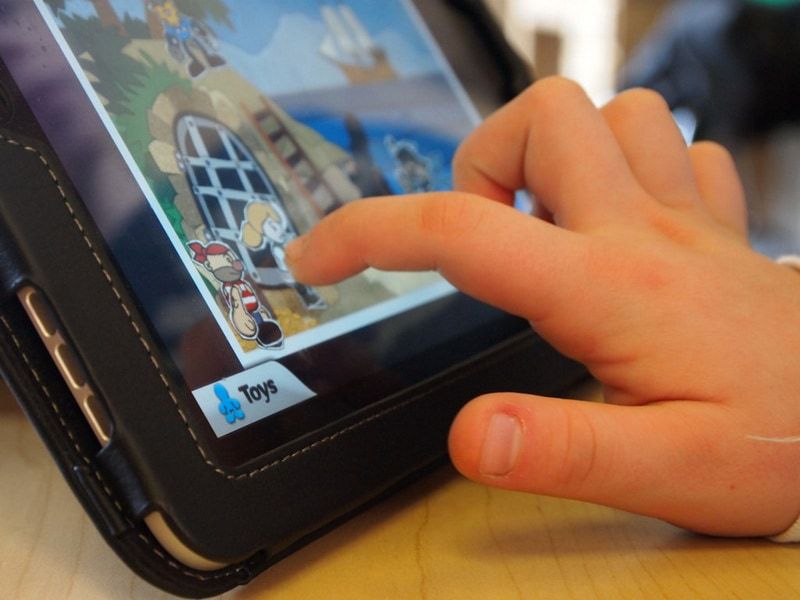
 Why are there so many buttons? How many ways are there to hold this? Is this even pointing the right way? These were but a few of the questions that crossed my mind as I pulled the trigger on my nephew’s Nerf gun in an attempt to fend off the stream of foam bullets headed my way. Toys used to be so simple!
Why are there so many buttons? How many ways are there to hold this? Is this even pointing the right way? These were but a few of the questions that crossed my mind as I pulled the trigger on my nephew’s Nerf gun in an attempt to fend off the stream of foam bullets headed my way. Toys used to be so simple!There are several adjectives to describe my nephew and what an amazing person he is. Loving, sensitive, caring, active and busy are the first ones that come to mind when I think of his contagious smile. Each time I go to visit him, I'm excited by the idea of reverting back to a childlike state so I can once again be thrilled by the adrenaline that comes with a game of hide-and-seek.
However, each time I leave, I'm slightly disappointed.
Too many choices
Instead of being greeted with eager anticipation of the fun activities we might enjoy together, I have to roam from room to room to eventually find him engaged with one of the nine toys he's surrounded himself with. I’m lucky if I can get him to look up from what he’s doing long enough to even notice I’ve arrived.
Each toy seems more complex than the one before—action figures that turn into buildings, an Xbox system, an iPod and an iPad—all belonging to the 6-year-old in front of me. And, unfortunately, two more adjectives come to mind: spoiled and over-stimulated.
The number of toys my nephew has always seemed unnecessary to me. He can go for days without ever having to play with the same item twice, yet he's continually whining that “Johnny” next door has a new toy he simply must have, or that there's nothing for him to do.
When I was little, my mother was happy to have me follow her everywhere and take interest in her day, until the moment the words “I’m bored, there's nothing to do” slipped out of my mouth. The speed and finesse with which she could turn to face me still impresses me today.
It was never more than a second after I'd uttered those six words that she'd stare me in the eye and say, “Well, go find something to do,” in a tone that implied doing so would in my best interest.
I've never heard anything of the sort come from my brother. Instead, my nephew's whining is rewarded with the parents attempting to engage the boy with one of his iPad games, and if that fails, purchasing him a new app on his iPad.
The first time I watched this sequence of events, I was appalled. I couldn't believe how much effort went into ensuring that my nephew was always having a good time. The more I thought about it, the more concerned I grew, and I asked myself:
What are the effects of this seemingly constant over-stimulation?
What is the benefit of having toys that not only require instructions, but also offer a "help line" number in case of confusion?
More importantly, what are the negative outcomes that these toys (and, by extension, lifestyles) might help perpetuate?
When I look at all the toys available today, I can’t help but think that there's something positive to be said about the simplicity of a ball or a kite. When some people picture a kite, they think of it in parts—nothing but a canvas, a couple of pieces of wood and a string. You might ask, how can that be entertaining?
The joyous art of simplicity
 When I picture a kite, I'm transported back to the time of my 11-year-old self, enjoying the hours I spent in the field next to my house. I can feel the wind whiz past me as I run back and forth, attempting to make my kite fly on windless days. I imagine that I'm a pretty blue butterfly, and with just the right speed and wind, I'll be lifted into the air to flutter about as I see fit.
When I picture a kite, I'm transported back to the time of my 11-year-old self, enjoying the hours I spent in the field next to my house. I can feel the wind whiz past me as I run back and forth, attempting to make my kite fly on windless days. I imagine that I'm a pretty blue butterfly, and with just the right speed and wind, I'll be lifted into the air to flutter about as I see fit.Back then, all I needed was my imagination, along with a few scraps from the garage, to entertain myself. I learned not only how to be alone with myself, but also how to make myself happy, rather than over-indulged.
What does my nephew learn about himself from his iPad? Of course, there are many positive aspects of the complex and intricate games he plays. They develop cognitive ability, hand-eye coordination, the ability to multitask and a multitude of other skills, but do they allow us to connect to ourselves and our surroundings? Instead of using his imagination to build a castle out of sticks, or searching for four-leaf clovers, my nephew allows complex toys to do all his thinking for him. He achieves what can only be considered a fleeting and unimpressive sort of stimulation.
It's the missing emotional connection to any one of his toys that concerns me the most. His lack of fulfillment, despite the constant presence of various forms of entertainment, has sometimes led him to act greedy or jealous and show a lack of appreciation for all the things he has.
One solution to the possible perils of over-stimulation would be to return to simplicity. Rather than continually recreating Nerf guns to include additional features that will ultimately have every little boy begging for the newest model, we should encourage children to spend more time finding something to do with the simple things that surround them. There's nothing quite as complex or entertaining as a child’s ability to transform a kite using only his or her imagination!
«RELATED READ» MEANINGFUL PARENTING: 5 steps to developing a deeper relationship with your children»
image 1. Pixabay 2. Pixabay
Click to Post
